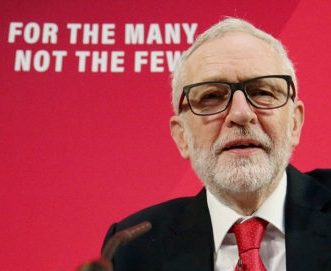Macarena Ares and Silja Häusermann
Mainstream parties of the left are in decline. But progressive politics is thriving far beyond its traditional blue-collar base
Wed 10 Jan 2024
Over the past two decades, election results in western Europe have been framed within the narrative of a crisis of the left. Think of the near-implosion of the French Socialist party as a case in point. In 2022 the Socialist presidential candidate received less than 2% of the first-round vote, the worst presidential election result in the party’s history.
Beyond the ups and downs of specific elections, the performance of social democratic parties has, on average, been marked by a tremendous decline across western European democracies, from a vote share of nearly 40% to below 20%.
But fixating on the fate of social democratic parties alone is misleading: it overlooks the broader fate of progressive politics that prioritises the core principles of egalitarianism, inclusion and sustainability. While mainstream parties on the left are declining, progressive politics is transforming, renewing and in some instances even thriving.
Many of the diagnoses of the left’s challenges rely on assumptions that are at odds with recent research (which we draw on in six new briefs).
One of these flawed claims is the supposed decline of working-class support for the left, which obscures the massive voter gains that progressive parties have made beyond their traditional constituencies. This misinterpretation is rooted in outdated notions about the social composition of progressive party electorates. True, the socioeconomic structure in western Europe today is very different from that which underpinned the golden age of social democracy in the postwar years of the 20th century. The traditional left electorate – industrial workers – has become a minority in most western European democracies, representing 10-20% of the workforce only. However, the decline of the industrial workforce does not signal the demise of progressive politics, for two reasons.
The working class has changed: workers in the service sector, particularly in care, personal and recreational services, are today the most disadvantaged. They differ from the industrial working class in that they tend to be younger, female and often have a migration background. Second, voters from the educated middle classes, often employed in services or the public sector, have become the largest and most loyal electorate of progressive parties, whether social democratic, socialist, green or left-libertarian. Progressive parties today engage with a diverse range of voters, from people in precarious or insecure work, women and migrants, to the expanding middle classes. Any analysis that keeps insisting on the declining blue-collar working class as the sole viable electoral constituency of the left underestimates the electoral base of progressive parties overall.
To wield political influence, progressive politicians and parties need to consolidate support from beyond the industrial working class. Broadening their electoral base to middle-class voters does not need to weaken the redistributive message. On the contrary, research shows that even the newer segments of the left electorate strongly favour progressive, redistributive economic and social policies – beyond their support for social inclusion and sustainability.
null
Another false assumption that often skews analysis of the crisis of the left is that the middle-class voters induce a rightward shift on such topics as income redistribution and egalitarianism. Such assumptions are often made about professionals supporting green and left-libertarian parties in the progressive bloc. These left voters tend to have higher levels of income and education than average, and, at first glance, seem to prioritise demands for cultural liberalism, liberal migration policy or environmental measures over questions of social justice. However, attracting the support of these voters will not cost progressive parties their redistributive agenda, as middle-class voters are drawn to parties advocating both economic redistribution and socio-cultural inclusion.
The belief that these voters prioritise one over the other is not supported by the findings of our survey research. On welfare state intervention and income redistribution, green voters do not differ from social-democratic voters at all. Both groups are consistently leftwing in their economic considerations. These voters’ commitment to egalitarian redistributive policy is also manifest in their clear opposition to welfare chauvinism. More than two-thirds of social democratic, green or radical left voters reject restrictions on migrants’ access to social assistance. Moreover, redistributive issues are high on green parties’ agendas. Since the 2010s, in particular, they have emphasised these topics to an even greater extent than social democratic parties.
- Macarena Ares is an assistant professor of political science at the University of Barcelona. Silja Häusermann is a professor of political science at the University of Zurich. Both are co-convenors of the Progressive Politics Research Network, whose findings are published here


